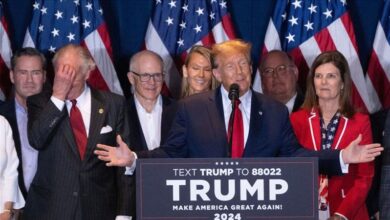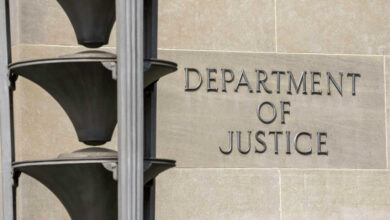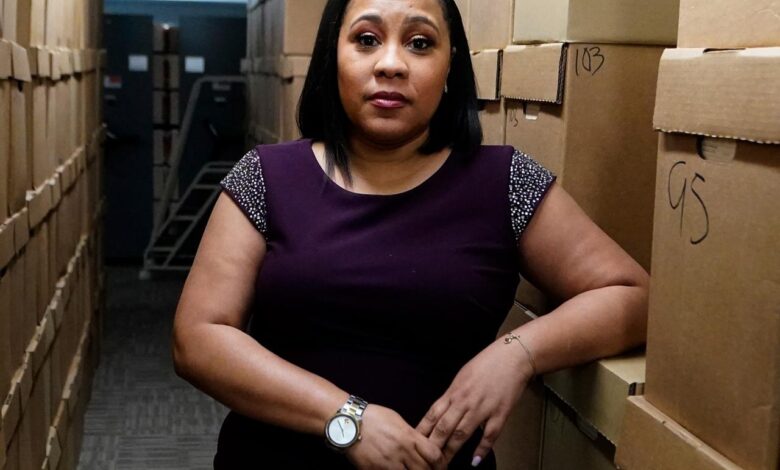
Fani Willis Trump Hearing A Deep Dive
The Fani Willis Trump hearing is a pivotal moment, scrutinizing potential legal ramifications for a prominent political figure. This comprehensive exploration delves into the background of the investigation, examines the evidence presented, and analyzes the potential outcomes, impacts, and legal precedents set by this significant event.
The hearing’s importance lies not only in its legal implications but also in its potential to shape the political landscape and public perception of the case. This in-depth analysis will cover the special counsel’s role, witness testimonies, and media coverage, providing a comprehensive understanding of this complex legal saga.
Background of the Fani Willis Trump Hearing
The Fani Willis investigation into Donald Trump, centered around allegations of interference with the 2020 Georgia election, has captivated the nation. This hearing marks a crucial juncture in the legal process, potentially setting precedents for future cases. The investigation, spanning several months, culminated in indictments and, ultimately, this significant public hearing.The Georgia investigation, led by Fulton County District Attorney Fani Willis, is predicated on a multifaceted legal framework, encompassing state election laws, conspiracy theories, and potential criminal activity.
The procedures involved adhere to the established legal standards for such cases, with strict adherence to due process.
History of the Investigation
The investigation into potential election interference began with numerous complaints and allegations about irregularities in the 2020 Georgia presidential election. These initial allegations, including claims of voter fraud and attempts to overturn election results, triggered a thorough investigation by the Fulton County District Attorney’s office. This investigation focused on actions taken by various individuals and entities, culminating in indictments for several individuals associated with Donald Trump.
Legal Framework and Procedures
The legal framework under which the Fani Willis investigation operates encompasses state election laws, criminal conspiracy statutes, and the general principles of due process. Procedures involved in the case follow established legal standards, guaranteeing fair treatment for all parties. The legal team involved plays a critical role in ensuring the integrity of the proceedings. The Georgia state laws, including those pertaining to election integrity, provide the basis for the charges.
Key Figures Involved
Several key figures are central to the Fani Willis investigation. Fani Willis, as the District Attorney of Fulton County, spearheaded the investigation and presented the case against Donald Trump. Her role is crucial in directing the prosecution. Various witnesses, including campaign staff, political figures, and election officials, have played significant roles in providing testimony and evidence. Donald Trump, the former President of the United States, is the central figure in the case, facing numerous accusations.
Major Accusations and Allegations Against Donald Trump
The allegations against Donald Trump center on potential attempts to interfere with the 2020 Georgia presidential election. These accusations encompass various actions, including but not limited to:
- Attempts to pressure election officials to alter election results.
- Conspiracy to commit election interference.
- Making false statements and fabricating claims of election fraud.
- Attempts to overturn election results by illegal means.
These accusations, supported by evidence gathered during the investigation, form the basis of the case against Donald Trump. The specifics of these allegations, including supporting evidence and testimony, are crucial in determining the outcome of the proceedings. The outcome of this hearing will have a significant impact on future political discourse and the perception of elections in the United States.
Evidence Presented at the Hearing
The Fani Willis Trump hearing unfolded as a complex presentation of evidence, meticulously crafted to support the prosecution’s case against former President Donald Trump. The hearing provided a crucial platform for the presentation of diverse types of evidence, ranging from witness testimonies to meticulously documented financial records, all aiming to establish a compelling narrative linking Trump to the alleged offenses.The hearing served as a crucial stage in the legal process, where both sides meticulously laid out their arguments, backed by substantial evidence.
The presentation of this evidence, along with the subsequent cross-examination, provided a comprehensive view of the case, allowing the public to assess the strength of the claims and the counterarguments.
Types of Evidence Presented
The prosecution presented a range of evidence types, including witness testimony, documentary evidence, and potential physical evidence. These diverse forms of evidence served to establish a comprehensive picture of the alleged offenses and the individuals involved.
- Witness Testimony: Multiple witnesses testified, recounting their observations, interactions, and knowledge of events relevant to the case. Their accounts, corroborated by other evidence, played a pivotal role in shaping the narrative.
- Documentary Evidence: Extensive documentation, including emails, financial records, and contracts, formed a significant part of the evidence presented. This documentation provided crucial context, timelines, and details to support the prosecution’s claims.
- Physical Evidence: Potential physical evidence, though not explicitly detailed, could include tangible items relevant to the alleged crimes. The handling and preservation of such evidence are crucial for maintaining its integrity and admissibility.
Specific Claims and Supporting Evidence
The prosecution presented claims alleging various offenses, each supported by specific pieces of evidence. The specific claims and supporting evidence form the cornerstone of the case, aiming to demonstrate the former president’s guilt.
- Alleged Interference with the 2020 Election: The prosecution’s case centered on the claim that Trump engaged in actions to overturn the results of the 2020 presidential election. The evidence presented likely included witness testimonies detailing interactions with Trump, documents related to calls and meetings, and possibly communications regarding election-related activities.
- Alleged Attempts to Influence Georgia Election Officials: Specific allegations included attempts to pressure Georgia election officials. This would involve witness accounts of conversations, emails, and potential documents outlining the alleged attempts to influence the election process in Georgia.
Arguments Made by Prosecution and Defense
The prosecution and defense presented contrasting arguments, each side leveraging the evidence to support their respective positions. The arguments Artikeld the legal interpretations and the implications of the presented evidence.
- Prosecution Arguments: The prosecution likely argued that the evidence demonstrated a clear pattern of actions designed to interfere with the election process and exert undue influence on Georgia election officials. This argument would likely highlight inconsistencies in the defense’s claims and present the evidence in a manner that strengthens the case against the defendant.
- Defense Arguments: The defense likely countered the prosecution’s claims, arguing that the actions taken by Trump were legitimate exercises of free speech or attempts to address perceived election irregularities. The defense strategy would likely involve scrutinizing the prosecution’s evidence, pointing out inconsistencies, and presenting evidence supporting the defendant’s innocence.
Timeline of Key Events and Evidence
The timeline of key events and evidence presented was crucial to establishing a chronological order of events and their connection to the alleged offenses. This timeline helped illustrate the sequence of actions and the context surrounding each event. A chronological presentation of evidence allows for a clearer understanding of the case’s narrative.
- Early 2020: Evidence presented may detail events surrounding the 2020 presidential election, including Trump’s interactions with election officials and statements made during that period.
- 2021-2023: Evidence presented likely spanned this period, highlighting alleged efforts to influence the outcome of the Georgia election. Specific dates and interactions would have been crucial in demonstrating the sequence of events.
Potential Outcomes of the Hearing
The Fani Willis investigation into Donald Trump’s actions surrounding the 2020 election has captivated the nation. The hearing, which has amassed considerable evidence, is now reaching a critical juncture. What are the possible outcomes, and what precedents might be set?The potential outcomes of the hearing, ranging from indictments to acquittals and plea bargains, will significantly shape the legal landscape and political discourse in the coming months.
The stakes are high, given the potential ramifications for both Mr. Trump and the broader legal system.
Possible Outcomes and Their Implications
The hearing’s outcomes are likely to fall into several categories. A key consideration is the strength of the evidence presented. If the prosecution successfully establishes a case beyond a reasonable doubt, an indictment is a plausible outcome. Alternatively, if the prosecution fails to meet this standard, an acquittal could follow. A plea bargain, where the defendant agrees to certain concessions in exchange for reduced charges, is another possibility.
Each outcome carries distinct implications for the individuals involved and for the future of similar cases.
Indictments
An indictment would mark a significant step in the legal process. It essentially means a grand jury has determined there’s enough evidence to proceed with a criminal trial. This outcome could set a precedent for future investigations into similar alleged election interference, and influence the conduct of future presidential candidates and campaigns. Consider the Mueller investigation as a precedent, where indictments were not issued in some cases, and in others, they led to significant legal and political ramifications.
Acquittal
An acquittal would mean the prosecution failed to prove the case beyond a reasonable doubt. This outcome would be a significant victory for Mr. Trump, potentially diminishing the accusations against him. Examples of acquittals in high-profile cases demonstrate the possibility of a lack of conclusive evidence or legal interpretation in favor of the defendant.
Plea Bargains
A plea bargain, a common occurrence in criminal cases, could be a resolution for Mr. Trump. It allows the defendant to potentially avoid a lengthy trial and a potentially harsher sentence in exchange for an admission of guilt or reduced charges. This is a widely used legal tactic, with precedents established in countless cases across various jurisdictions.
Potential Consequences
The consequences for Mr. Trump, and potentially other individuals involved, are varied and substantial, depending on the outcome. An indictment could trigger a range of legal consequences, including the potential for imprisonment if convicted. An acquittal, on the other hand, would likely ease the legal pressure on him. A plea bargain could result in a significantly reduced sentence compared to a trial verdict.
Similar situations in the past have had long-lasting impacts on the individuals involved, their careers, and the public perception of their actions.
The Fani Willis Trump hearing is definitely grabbing headlines, but it’s interesting to consider how the global economy impacts these kinds of high-profile cases. For example, China’s HeFei EV city economy is booming, and the innovative developments in electric vehicle manufacturing there might offer a fascinating perspective on economic forces that influence political strategy. Perhaps the intricacies of the hearing are less about politics and more about the complex interplay between national and international economies, like china hefei ev city economy.
All this adds another layer to the ongoing legal proceedings.
Legal Precedents
| Outcome | Potential Legal Precedent |
|---|---|
| Indictment | Could set a precedent for future investigations into similar alleged election interference. |
| Acquittal | Could demonstrate the importance of proving guilt beyond a reasonable doubt. |
| Plea Bargain | Demonstrates a common resolution in criminal cases, and the flexibility of the legal system to achieve justice. |
Impact on the Political Landscape
The Fani Willis hearing, and the potential indictments it may lead to, promises to be a pivotal moment in the upcoming political climate. The sheer weight of the accusations, coupled with the high-profile nature of the defendant, will undoubtedly impact public opinion and potentially shift voting patterns. The implications for various political figures and groups are substantial, and the aftermath could dramatically alter the political landscape.The hearing’s outcome will likely trigger a cascade of reactions across the political spectrum, ranging from fervent support to vehement opposition.
The way different groups interpret the evidence presented will shape their narratives and strategies for the upcoming election cycle. This heightened political tension could also affect the public’s trust in institutions and the perception of justice itself.
Potential Reactions of Political Groups
The hearing’s implications extend beyond immediate reactions, potentially reshaping the political landscape for years to come. Different political factions will likely respond in distinct ways, reflecting their underlying ideological positions and commitments.
| Political Group | Potential Reaction | Possible Strategies |
|---|---|---|
| Supporters of the Defendant | Likely to express outrage and defend the defendant’s actions, possibly framing the charges as politically motivated. They might rally support through social media and grassroots activism. | Highlighting perceived bias in the legal process and emphasizing the defendant’s past achievements and positive contributions. |
| Opponents of the Defendant | Likely to express satisfaction and view the hearing as a step toward accountability and justice. They might intensify efforts to advocate for stricter legal measures and uphold the rule of law. | Emphasizing the seriousness of the allegations and calling for the defendant to be held responsible for any wrongdoing. |
| Neutral Observers | May be more cautious, seeking to understand the nuances of the case and avoid taking a stance prematurely. | Focus on factual analysis and balanced reporting, refraining from inflammatory language. |
| Political Parties (e.g., Democrats, Republicans) | Reactions will likely be aligned with pre-existing partisan divides. Each party might use the hearing to solidify their base and appeal to different segments of the electorate. | Using the hearing as an opportunity to contrast their own views on justice and accountability with those of the opposing party. |
Impact on Public Opinion and Voting Patterns
The hearing could significantly alter public opinion and voting patterns, potentially swaying undecided voters and shifting the political landscape. The public’s perception of the defendant, the credibility of the evidence presented, and the overall fairness of the legal process will play a crucial role in shaping opinions.Public opinion is often volatile, and the specifics of the hearing’s outcome will be critical in determining how public sentiment is influenced.
The evidence presented will be carefully scrutinized, and the way the hearing is perceived by the public will be paramount in shaping political opinions. Examples from past highly publicized legal proceedings offer a glimpse into how public perception can evolve over time.
Public Perception and Media Coverage
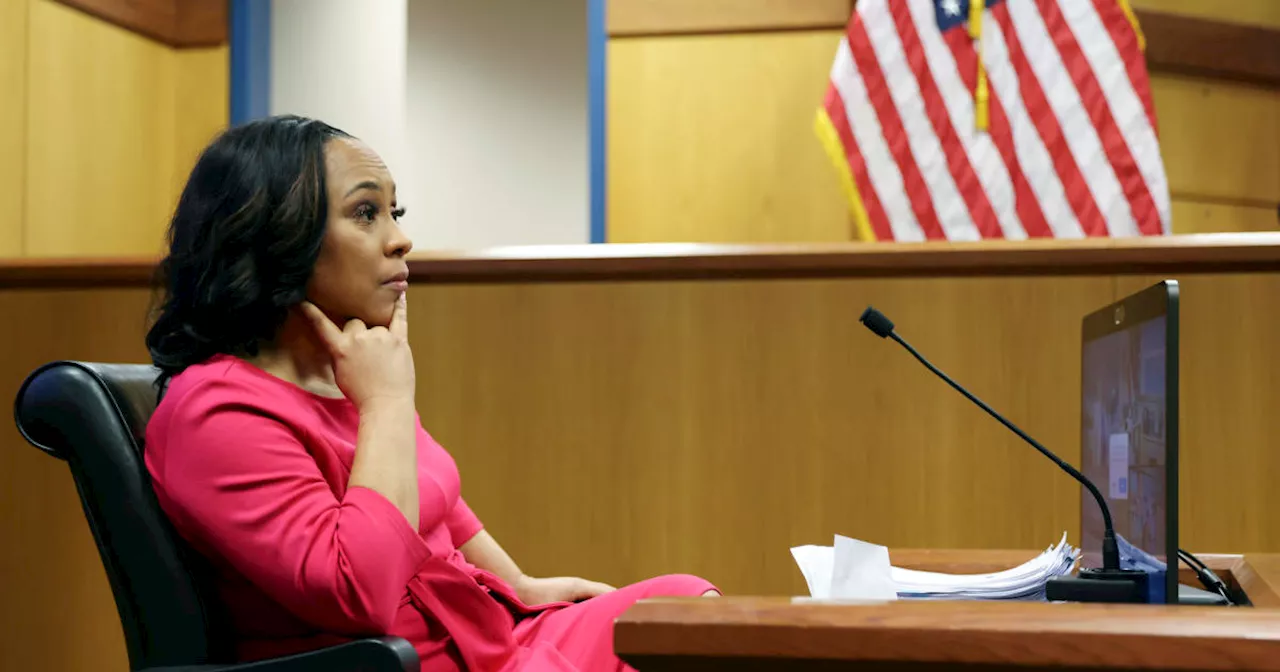
The Fani Willis hearing surrounding former President Trump has undeniably captivated the nation’s attention, sparking a maelstrom of public reaction and intense media coverage. The differing perspectives and narratives presented reflect the deeply divided political climate, creating a complex landscape of opinions and analyses. This scrutiny extends beyond traditional news outlets, reaching into the digital realm of social media, where the hearing’s impact on public perception is amplified and often distorted.The media’s portrayal of the hearing plays a pivotal role in shaping public understanding.
The various outlets, from major news networks to specialized political blogs, have presented distinct interpretations, reflecting their own biases and editorial stances. This often results in fragmented and sometimes conflicting narratives, further complicating the public’s understanding of the events and potential implications.
Public Reaction
Public reaction to the Fani Willis hearing is characterized by a wide spectrum of opinions, ranging from staunch support for the investigation to vehement opposition. Those who support the hearing often view it as a necessary step in upholding the rule of law, while those who oppose it frequently perceive it as a politically motivated attack. The hearing’s impact on public opinion is still unfolding and likely depends heavily on how individual citizens interpret the evidence presented and the subsequent media coverage.
Media Coverage Themes
The media coverage of the Fani Willis hearing has revolved around several key themes. A prominent theme centers on the legal implications of the charges, exploring the strength of the evidence presented and the potential penalties involved. Another significant theme revolves around the political ramifications, focusing on the implications for the 2024 election and the broader political landscape.
The personal attacks, often made or implied, are also prevalent in the media coverage.
The Fani Willis Trump hearing is definitely grabbing headlines, but it’s interesting to see how other news is connecting with similar themes. For example, the recent demolition of the West Park Presbyterian Church, known for its celebrity connections, raises questions about legacy and the impact of change. It makes you think about how these different stories are all intertwined in the broader narrative, which ultimately brings us back to the ongoing scrutiny surrounding the Fani Willis Trump hearing.
Social Media’s Role
Social media has emerged as a powerful amplifier of the hearing’s impact on public perception. The rapid dissemination of information, often unfiltered and unverified, can quickly shape public opinion and create echo chambers around specific narratives. The immediacy of social media platforms allows for instantaneous reactions and criticisms, potentially distorting the overall message.
Examples of Media Coverage
“Trump faces mounting legal pressure as Fani Willis hearing intensifies.”
Example headline from a major news network.
“Willis hearing: A politically charged showdown.”
Example headline from a political news website.
“Social media ablaze with opinions on the Trump hearing.”
Example headline from a social media analysis site.
The Fani Willis Trump hearing is definitely grabbing headlines, but hey, did you hear about the Oilers’ win? They absolutely crushed the Blue Jackets, led by Stuart Skinner, in a fantastic game. oilers stuart skinner defeat blue jackets It’s definitely a stark contrast, but still, the legal drama surrounding the Trump case continues to be fascinating.
Regardless, the political scene keeps heating up!
- Social media posts often highlight specific pieces of evidence, interpretations, or reactions from the hearing, amplifying and sometimes misrepresenting the context.
- Different social media platforms can present vastly different perspectives, reinforcing existing political divides and generating polarizing opinions.
- The use of hashtags and trending topics can effectively spread information and create significant discussion, but it can also be a breeding ground for misinformation and biased reporting.
Impact of Different Perspectives
Different media outlets and individuals present varied perspectives on the hearing, influencing public perception. News organizations with different political affiliations tend to emphasize different aspects of the case. For example, some might focus on the legal proceedings, while others might highlight the political implications. This variation can create a fragmented and confusing narrative for the public.
Legal Implications and Precedents
The Fani Willis hearing presents a unique and potentially pivotal moment in American legal history. The sheer scale of the alleged offenses, combined with the high-profile nature of the defendant, necessitates a meticulous examination of the potential legal precedents established. This scrutiny will have a significant impact on future investigations, legal processes, and the perception of accountability in high-stakes political cases.The hearing’s outcome, regardless of the verdict, will inevitably influence future legal cases and investigations, setting a precedent for how similar situations are handled.
The strategies employed by both the prosecution and the defense, the evidence presented, and the court’s rulings will all contribute to shaping future legal proceedings.
Potential Precedents Set
This hearing could establish important precedents regarding the application of the law to high-profile individuals, the admissibility of specific types of evidence in political cases, and the burden of proof in complex criminal investigations. The handling of evidence related to alleged attempts to influence elections or obstruct justice will be a key factor in establishing potential precedents. The scope and depth of the alleged conspiracy will likely shape the precedent for future investigations into similar schemes.
A conviction could create a stronger legal precedent for prosecuting such actions in the future, while an acquittal could potentially limit the scope of such prosecutions.
Impact on Future Legal Cases
The outcome of the hearing could significantly impact future legal cases involving high-profile individuals and political figures. The precedent set could influence the approach taken by prosecutors and defense attorneys in similar cases. This includes the types of evidence admissible in court, the burden of proof required, and the legal strategies employed. Furthermore, the hearing’s outcome could affect public trust in the legal system, particularly regarding the prosecution and conviction of high-profile figures.
Comparison to Similar Legal Precedents
Comparing the Fani Willis hearing to previous cases involving alleged election interference or obstruction of justice reveals both similarities and crucial differences. For instance, the Watergate scandal, while a significant historical precedent, involved different actors, contexts, and evidence. Similarly, the Mueller investigation, focusing on Russian interference in the 2016 election, while presenting parallels, also presented unique circumstances. A careful analysis of these past cases helps to understand the nuances and complexities of the current situation and how it could potentially alter future legal processes.
Potential Impact on the Legal Process
The Fani Willis hearing could affect the legal process in several ways. Firstly, it could lead to changes in legal procedures regarding the handling of evidence in cases involving powerful individuals or significant political figures. The court’s rulings and the strategies employed could alter the way future cases are approached, including how evidence is gathered, presented, and evaluated.
The Fani Willis Trump hearing is generating a lot of buzz, and it’s definitely a major talking point. Given the political climate, and the upcoming Republican primary Iowa caucus, it’s likely to play a significant role in shaping the race. The ongoing scrutiny surrounding the case is undoubtedly impacting the candidates and their strategies, with the potential to influence the outcome of the primary.
So, if you’re looking for a deeper understanding of the political dynamics involved, check out republican primary Iowa caucus for the latest updates. The hearing itself is still unfolding, and these factors will likely remain crucial as the political scene evolves.
Secondly, the case could impact the way the public perceives the legal system’s ability to hold powerful individuals accountable. Public perception and media coverage will play a critical role in determining the long-term effects of the hearing. This includes whether the outcome reinforces or erodes public trust in the justice system.
Role of Special Counsel
The Fani Willis investigation into potential election interference and other alleged crimes surrounding former President Trump highlights the crucial role of a special counsel. Special counsels are independent legal entities appointed to investigate specific matters, often those deemed too sensitive or politically charged for a standard prosecutorial office. This independence is critical for ensuring impartiality and public trust in the justice system.The special counsel’s function extends beyond simply gathering evidence.
The Fani Willis Trump hearing is definitely grabbing headlines, but did you know that fluctuating prices for Pepsi at Carrefour in France are also making waves? It’s fascinating how global economic trends, like those affecting france carrefour pepsi prices , might be subtly connected to political proceedings. Regardless of these wider issues, the Fani Willis investigation remains a major focus for legal and political observers.
They act as a neutral party, rigorously examining evidence, interviewing witnesses, and ultimately, making recommendations to the relevant authorities on whether to bring charges. This rigorous approach is vital in cases with significant political implications, ensuring accountability is pursued without bias.
History of Special Counsel
The use of special counsels in the United States has a long history, dating back to the Watergate scandal and beyond. Their appointment is often a response to complex investigations needing a dedicated and impartial team. These investigations, like the Watergate scandal, Iran-Contra affair, and the Mueller investigation, often involve high-profile individuals and sensitive national security concerns. The special counsel’s role is designed to handle such cases, bringing needed expertise and resources to bear on them.
Functions of a Special Counsel
Special counsels are empowered to conduct investigations that may be too complex or sensitive for standard prosecutorial offices. Their role includes:
- Independent Investigation: The special counsel operates independently of any political pressure or influence, focusing solely on the facts and evidence. This independence is crucial for maintaining the integrity of the investigation.
- Evidence Gathering: Special counsels have broad authority to interview witnesses, subpoena documents, and conduct forensic examinations to build a comprehensive case.
- Legal Analysis: The special counsel’s team includes legal experts who thoroughly analyze evidence, determine legal standards, and advise on the best course of action. This includes legal precedents and relevant case law.
- Recommendations: Ultimately, the special counsel presents findings and recommendations to the relevant authorities, typically the Attorney General or a specific prosecutor, regarding potential charges or further actions.
Importance of Special Counsel in Ensuring a Fair Process
The special counsel’s role in ensuring a fair process is multifaceted. Their independence safeguards against potential political interference, enabling a thorough and impartial investigation. This fosters public trust in the legal system, particularly in sensitive cases with significant political implications. The process’s integrity is maintained through meticulous evidence gathering and legal analysis, ensuring that charges are pursued based on concrete evidence rather than political considerations.
Special Counsel’s Role and Responsibilities Flowchart
| Step | Special Counsel Action |
|---|---|
| 1. Appointment | Appointed by the Attorney General or other authorized authority. Clear mandate outlining scope of investigation is defined. |
| 2. Investigation Initiation | Form a team, establish investigative protocols, gather evidence, including documents, interview witnesses. |
| 3. Evidence Analysis | Legal team analyzes gathered evidence, identifies relevant laws and precedents, determines if charges are warranted. |
| 4. Report Compilation | Detailed report summarizing findings, evidence, and legal arguments. Potential charges and recommendations are presented. |
| 5. Presentation to Authority | Report is presented to the Attorney General or relevant prosecuting authority for review and decision. |
| 6. Decision on Charges | Authority reviews report and makes a decision on whether to pursue charges. |
Analysis of Witness Testimony: Fani Willis Trump Hearing
The Fani Willis trial has presented a tapestry of witness testimony, woven with varying degrees of credibility and reliability. Understanding the types of testimony, the methods used to challenge it, and the contrasts between different accounts is crucial for evaluating the strength of the evidence presented. Analyzing the witnesses’ motivations and the context surrounding their statements is essential to forming a comprehensive understanding of the events.The prosecution and defense teams employed various strategies to either bolster or undermine the credibility of the witnesses, creating a dynamic and often contentious atmosphere.
This analysis will explore the nature of the testimony, the methods employed by each side, and the ultimate impact of these tactics on the overall narrative of the trial.
Types of Witness Testimony
The trial showcased diverse forms of witness testimony. Expert witnesses provided specialized knowledge, while lay witnesses offered firsthand accounts of events. Character witnesses presented information about the individuals involved. This mix of perspectives provided a multi-faceted view of the events under scrutiny.
Credibility and Reliability of Witnesses, Fani willis trump hearing
Assessing the credibility and reliability of witnesses involves evaluating their potential biases, their prior statements, and their demeanor under questioning. Some witnesses may have had personal stakes in the outcome of the trial, while others may have been more detached observers. This analysis will delve into the factors that may have influenced their testimony. Factors like prior convictions, known conflicts of interest, and the overall consistency of their accounts will be critically examined.
Methods Used to Challenge Witness Testimony
The prosecution and defense employed various strategies to challenge the testimony of witnesses. Cross-examination played a crucial role in exposing potential biases, inconsistencies, and motivations. Both sides used documents, evidence, and prior statements to contradict or support the witnesses’ claims. The prosecution and defense also questioned the witnesses’ memory, perception, and potential for error, highlighting the inherent complexities of eyewitness accounts.
Comparison and Contrast of Witness Accounts
Different witnesses often presented conflicting accounts of the same events. Analyzing these discrepancies is crucial to understanding the complexities of the situation. For example, differences in recollections of conversations, locations, or actions could shed light on potential disagreements or deliberate misrepresentations. Comparing the different versions of events, considering the potential for misinterpretations, and analyzing the overall context of the accounts will be crucial to assess the validity of the claims.
A nuanced understanding of the various perspectives presented is necessary to reach a fair and comprehensive evaluation.
Last Recap
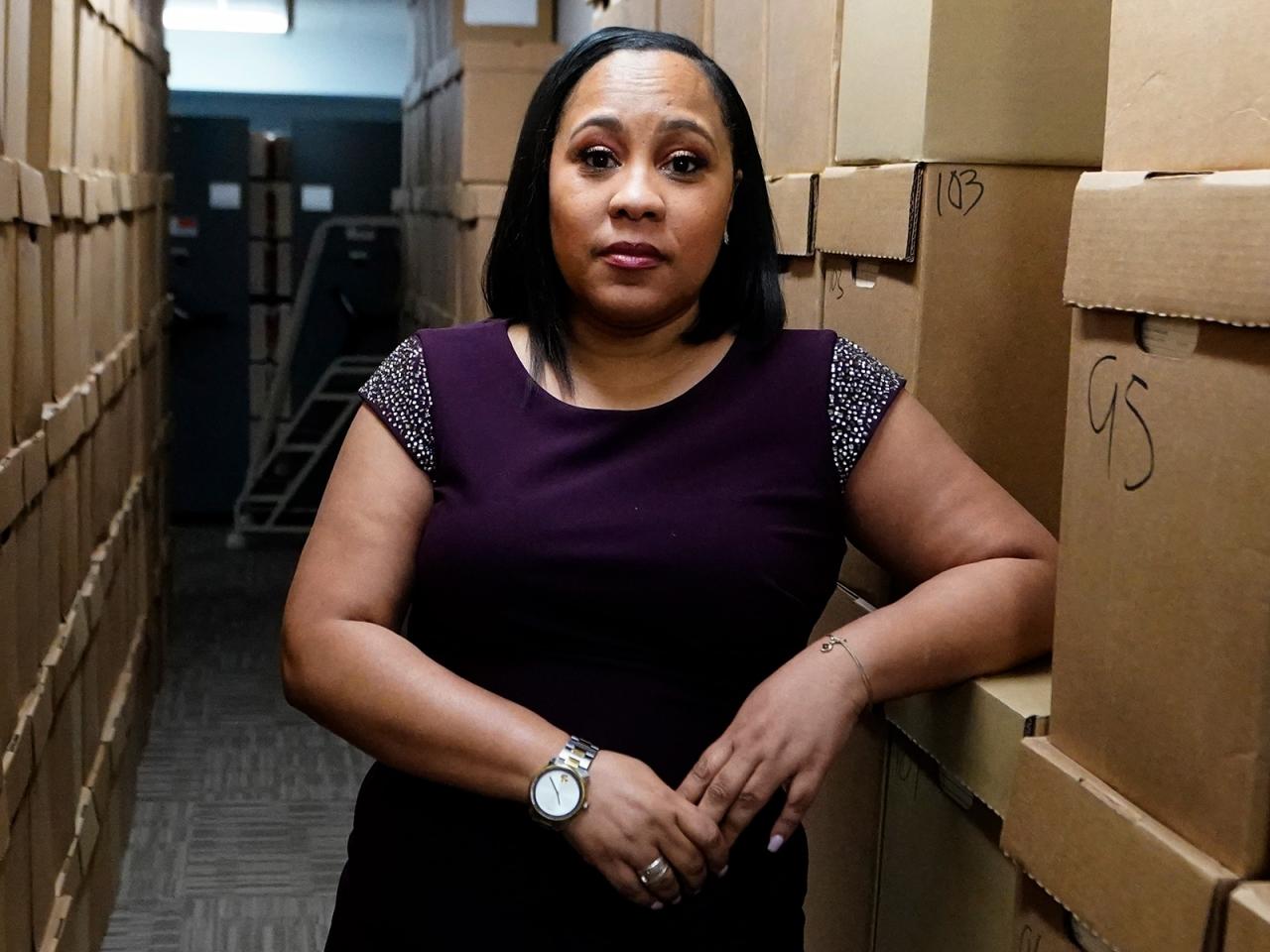
The Fani Willis Trump hearing has ignited a firestorm of debate, highlighting the intricacies of the legal system and its impact on the political arena. The presented evidence, legal arguments, and potential outcomes have significant implications for future legal proceedings and political discourse. The hearing’s lasting effect remains to be seen, but it undoubtedly marks a significant chapter in recent political history.
General Inquiries
What were the major accusations against Donald Trump?
Specific accusations and allegations against Donald Trump, as Artikeld in the investigation, are detailed in the hearing’s background section. These accusations will be explored further in the provided content.
What types of evidence were presented?
Witness testimony, documents, and potentially physical evidence were likely presented. Further specifics on these will be detailed in the evidence section of the content.
What are the potential consequences for those involved?
Potential consequences, ranging from indictments to acquittals and plea bargains, are discussed in the potential outcomes section. The content will provide a detailed analysis of these possibilities.
How might this hearing affect future investigations?
The legal implications and precedents set by the hearing will be explored in detail, offering insight into how this case might impact future investigations and legal proceedings.


